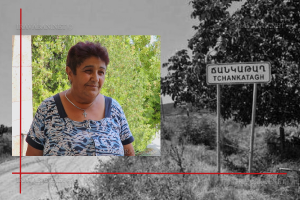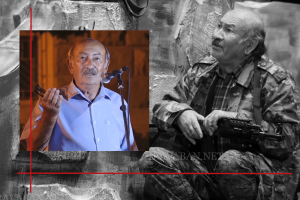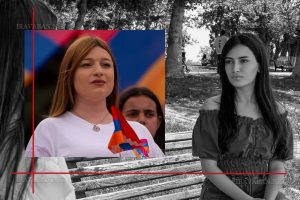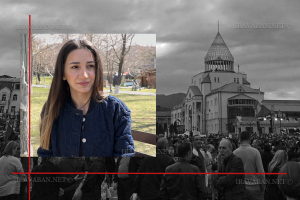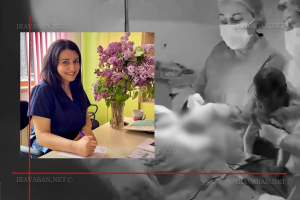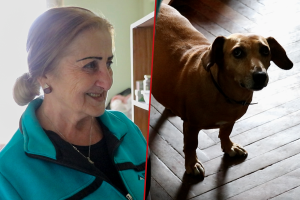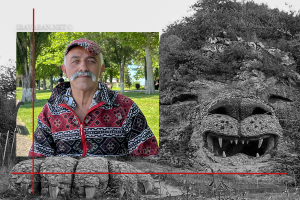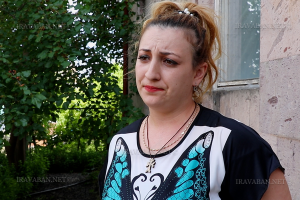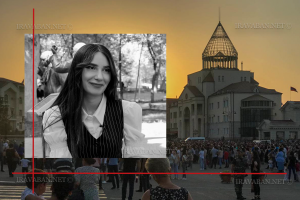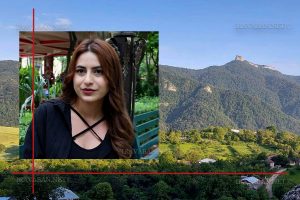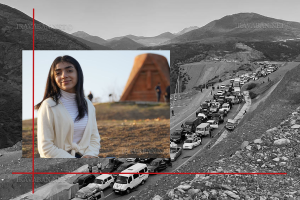Marusya Melkumyan, who was forcibly displaced from the occupied Republic of Artsakh, told in the framework of “Artsakh: Armenian Genocide 2023. Stories of Survivors” documentary project of Iravaban.net that he was forcibly displaced three times as a result of the Armenian-killing actions of the Azerbaijani side.
“I got married and went to Sumgait. We went there, my children were born there. We worked there, formed a family, set up a house. One day we got up and saw that telephone connections of the Armenians had been cut. The addresses of all Armenians were taken. They knew where Armenians lived so they could enter and the slaughter. They had slaughtered, slaughtered a lot. We did not go to work during this time. We were sitting at home, and already knew where and who was killed. Then we were told that they were a group of hooligans and had nothing to do with the Turks. We began to go to work, but it was not like in the former days. If you told the police that they were raping and killing, the police would not interfere. But there were people who helped. There was a case when an Azerbaijani hid an Armenian in his house, they caught that Azerbaijani and killed him as well,” she said.
Our interlocutor said that after those atrocities, she came to Artsakh, to her parents’ village.
“We came, and built a houses here. My children grew up, went to the army, and became participants in the war. We said: ‘this is it, we will stay here forever.’ But we went through so many wars. We fought five times. And we eventually came to Armenia,” she said.
Ms. Marusya said that the nine months of the blockade were extremely difficult.
“They made us to starve, there was no bread. The shops were empty. It was like treason, they make us to starve. Without electricity, without gas, they cut off the water. We were like homeless people. We had put stoves. To live like that in the 21st century! Like a homeless! They brought milk, we stood in queues for milk. The milk also ran out, there was no milk. They did it so that the people didn’t have time to protest and say: What are you doing? There was no fruit, nothing. Diseases had increased, adults could not stand it, and food was scarce. But we resisted for nine months. Have you heard that the Karabakh people are strong, they resist everything, they resisted? From adult to youngsters; from small to adults. United, and helping each other. And in the end, we were given 24 hours to leave Karabakh,” she said.
Our interlocutor said that on 19 September, when the Azerbaijani side unleashed another aggression, they tried to find fuel.
“We found fuel and left. We took clothes only. There was everything in the house, it was a hundred-year-old house. What to take, we escaped,” she said.
——————————————————————————————————————
“Artsakh: Armenian Genocide 2023. Stories of Survivors” documentary project of Iravaban.net is aimed at collecting the memories and testimonies of citizens forcibly displaced from Artsakh occupied by Azerbaijan, about the genocide of the Armenians of Artsakh committed by Azerbaijan, atrocities, the days of war, the path of deportation, etc.
Iravaban.net seeks help from citizens who will voluntarily agree to translate materials into different languages: Russian, English, French, Arabic, Persian, Turkish, Georgian, Chinese…
You can write to our e-mail address at: [email protected]
To donate for realization of the project: https://iravaban.net/en/become-a-supporter
Details in the video.
Hasmik Sargsyan

